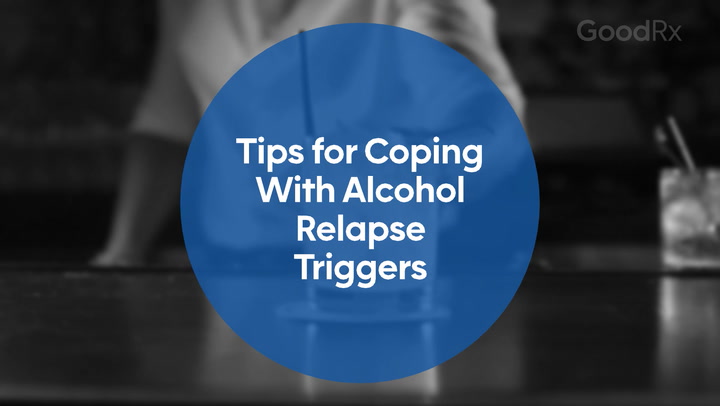
What Are the Signs of a Drug Overdose?
Key takeaways:
A drug overdose is a serious medical condition. It could result in death if left untreated.
Common signs of drug overdoses include vomiting, confusion, and being unresponsive. Symptoms can include slowed breathing, erratic pulse, and chest pains.
If you suspect that you or a loved one is having an overdose, get professional help immediately. Treatments, like naloxone, can help reverse symptoms if someone has an opiate overdose.
Table of contents

Drug overdoses are very common and dangerous events. Each year, more than 100,000 people in the U.S. die from a drug overdose. For those that survive an overdose, some go on to have harmful, long-term effects. Recognizing signs of an overdose early, can get treatment in place to prevent some of these complications.
Let’s take a closer look at overdoses and their signs and symptoms to help keep yourself and your loved ones safe.
What is an overdose?
An overdose occurs any time you take too much of a drug. With an excess of the drug in your system, it begins to overwhelm the normal functioning in your body and brain.
The toxic amount of the drug can be life-threatening and result in death. Or it could make you very ill, mentally and physically. Sometimes the effects can be brief or they can last a lifetime.
Some overdoses are obvious, with dramatic symptoms that require immediate medical attention. Other overdoses are more subtle and mild with an unclear set of symptoms. Whatever the case, being aware and educated about overdoses is essential to limit potential harm.
Overdose symptoms
Some general and common symptoms of a drug overdose are:
Nausea, vomiting, and diarrhea
Pain
Drowsiness, confusion, and poor coordination
Agitation and paranoia
Loss of consciousness
Breathing problems
Dangers of cocaine overdose: Learn more about the signs and symptoms of a cocaine overdose and what to do to get help.
Quick action in opioid overdose: Find out what steps to take when you suspect an opioid overdose.
Fentanyl overdose: Even small amounts of fentanyl can be deadly. Here are the signs and symptoms of fentanyl overdose to look for.
But keep in mind, the signs of overdose will differ greatly. Some factors that determine the signs and symptoms of overdose are:
The drug or drugs used
How much was used
How the drug was consumed (smoked, snorted, or injected)
The age and health of the individual
Previous experiences with drugs and overdoses
Overdoses can range from mild to severe, with coma or death being a real possibility. The breathing issues linked to opioid overdoses can cause loss of oxygen to the brain. This can lead to permanent brain damage and long-term health effects.
You can reduce your risk of overdose by avoiding dangerous substances and following prescription instructions for medications.
What are the signs and symptoms of an opiate overdose?
Opioid or opiate overdoses are very common. And they can happen very quickly and with little warning. The signs of an opioid overdose include:
Skin that’s pale or very clammy to the touch
Lips and fingernails turning blue
Limp body
Vomiting or gurgling noises from the mouth
Slowed breathing
Slowed heart rate
Being unconscious or unable to speak
Small pupils
Opioids and opiates have the same effects in the body. The terms differ only in where the drug comes from. Opiates — like morphine and codeine — occur in nature and are derived from the poppy plant. Opioid could refer to a drug that happens naturally or is made in a lab.
What does a depressant overdose look like?
Central nervous system (CNS) depressants, such as benzodiazepines, create drowsy and calming effects. When a depressant overdose occurs, it produces:
Vision problems
Extreme weakness and passing out
Slowed or stopped breathing
Confusion and lower alertness
Coma
What are the signs of alcohol poisoning?
Alcohol overdose symptoms include:
Slow and irregular breathing
Slow heart rate
Dulled reflexes
Confusion and trouble staying awake
Low body temperature and blue or pale skin
Seizures
What does a stimulant overdose look like?
Opioids, depressants, and alcohol have some overlapping side effects. But stimulants create different effects. The most common symptoms of stimulant overdose are:
Restlessness and overactive reflexes
Quicker breathing
Fever
Fast and irregular heartbeat
Extreme blood pressure changes
Irritability, paranoia, and aggression
Convulsions and coma
What happens in the body when you overdose?
When you use alcohol and other drugs, the substance begins disrupting your brain’s chemical messengers. The drug could slow down messengers, like in the case of alcohol, opioids, and depressants. Or it could speed up the messaging, like with cocaine, methamphetamine, and prescription stimulants.
Some disruption causes happiness, excitement, or relaxation. But too much imbalance causes a dangerous response. The drugs that slow down the body can stop your breathing and heartbeat. Drugs that speed the body up can damage your heart and trigger dangerous mental health symptoms.
What types of substances can cause an overdose?
Numerous substances can produce an overdose. Accidental overdoses can stem from:
Alcohol
Prescriptions medications, like attention-deficit hyperactivity (ADHD), anxiety, and painkiller medications
Over-the-counter (OTC) medications like acetaminophen
Illegal substances, like heroin, methamphetamine, and cocaine
Certain herbal remedies and supplements
The CDC studied the drugs linked to overdose. Of the top 10 drugs:
Six were opioids, including fentanyl, heroin, and oxycodone.
Two were stimulants — cocaine and methamphetamine.
Two were depressants — alprazolam (Xanax) and diazepam (Valium).
Alcohol wasn’t included on this list, but it’s a major contributor consistently. More than 2,200 people die from alcohol poisoning each year. Most are adults between 35 and 64 years old.
Can you prevent a drug overdose?
In most situations, you can prevent a drug overdose. Try these overdose prevention tips:
Take your medications exactly as they’re prescribed. Pay attention to the dose, the frequency, and the route of ingestion.
Don’t mix different types of drugs. Doing so can intensify or cover up their effects.
Never take a substance that you can’t verify. Dangerous substances, like fentanyl, can be mixed into drugs, which can increase the risk of overdose.
Get help. If you believe that your substance use or someone else’s is becoming problematic, reach out to a healthcare professional, therapist, or loved one.You can also reach out to a helpline like the National Helpline from the Substance Abuse and Mental Health Services Administration (SAMHSA) at 1-800-662-HELP (4357).
How are overdoses treated?
People experiencing overdoses need immediate medical attention. The treatment for an overdose depends on the substance used.
Drug overdose treatment can involve:
Blood and urine tests
X-rays and scans
Fluids through an IV
Help breathing with oxygen or a breathing machine
Activated charcoal
Other medications to limit symptoms
For opioid overdoses, naloxone (Narcan) is the best treatment. This opioid blocker reverses the effects of opioids.
For CNS depressants, like benzodiazepines and sleeping medications, flumazenil (Romazicon) may be used as overdose treatment.
With alcohol and stimulant overdoses, healthcare professionals will observe and treat symptoms as they emerge. They’ll work to maintain healthy breathing and heart rates to ensure safety.
What should you do if someone is showing signs of an overdose?
To keep yourself or others safe if someone appears to have an overdose, always stay calm and:
Contact emergency services immediately. Call 911 and get help.
Stay with the person, and keep them sitting or lying down.
Work to prevent choking if they happen to vomit. Roll the person on one side while supporting their head and neck.
Be honest with professionals about substance use to aid treatment.
Never interfere during an overdose, and wait for the professionals to arrive. Avoid moving the person, using substances to cancel the effects (see exception below), or offering them food. These attempts may not be helpful and can make symptoms worse.
When should naloxone (or Narcan) be administered?
The exception to offering help and assistance is with naloxone. Whether used as a nasal spray (Narcan) or the prefilled syringe, it saves lives and anyone can administer it.
You may be able to get naloxone from a pharmacy, community health center, or training program. Naloxone is often free and available without a prescription at pharmacies. If you suspect that someone is having an opioid overdose, you should give a dose of naloxone while you call 911.

Frequently asked questions
If you think that you have overdosed, you need to act quickly and call for help. Let someone know you need help or call 911 yourself. Emergency services can then administer Narcan (naloxone) or nalmefene once they arrive.
You should never induce vomiting in anyone who has a suspected overdose, even if the drugs were taken by mouth. The risk of choking far outweighs the potential benefits of getting the drugs out of your stomach
You might get your stomach pumped (gastric lavage) in the emergency department following an overdose. But if the stomach needs to be decontaminated, the emergency team will most likely use activated charcoal to absorb drugs that have been swallowed. Reversal medications and other supportive care is also used to help you recover from overdose.
The bottom line
Overdoses are harmful medical emergencies that can develop with little warning. You should be aware of the warning signs and take action quickly. Professional treatment is usually necessary, and speed could be the difference between safety and danger.
Why trust our experts?



References
Centers for Disease Control and Prevention. (2024). What to do if you think someone is overdosing.
Hedegaard, H., et al. (2018). Drugs most frequently involved in drug overdose deaths: United States, 2011-2016. National Vital Statistic Reports.
MedlinePlus. (2023). Oxazepam overdose.
MedlinePlus. (2023). Unconsciousness - first aid.
MedlinePlus. (2024). Opioid overdose.
Memorial Sloan Kettering Library. (2024). What are opioids?
National Center for Health Statistics. (2021). Drug overdose deaths in the U.S. top 100,000 annually. Centers for Disease Control and Prevention.
National Institute on Alcohol Abuse and Alcoholism. (2023). Understanding the dangers of alcohol overdose.
National Institute on Drug Abuse. (2011). Misuse of prescription drugs research report: Overview. National Institutes on Health.
National Institute on Drug Abuse. (2022). Naloxone drug facts. National Institutes on Health.
National Institute on Drug Abuse. (2024). The adolescent brain and substance use. National Institutes on Health.
Soto, P. (n.d.). Activated charcoal: An effective treatment for poisonings. Poison Control.
Substance Abuse and Mental Health Services Administration. (2018). Opioid overdose prevention toolkit: Five essential steps for first responders.
If you or someone you know struggles with substance use, help is available. Call SAMHSA’s National Helpline at 1-800-662-4357 to learn about resources in your area.

























